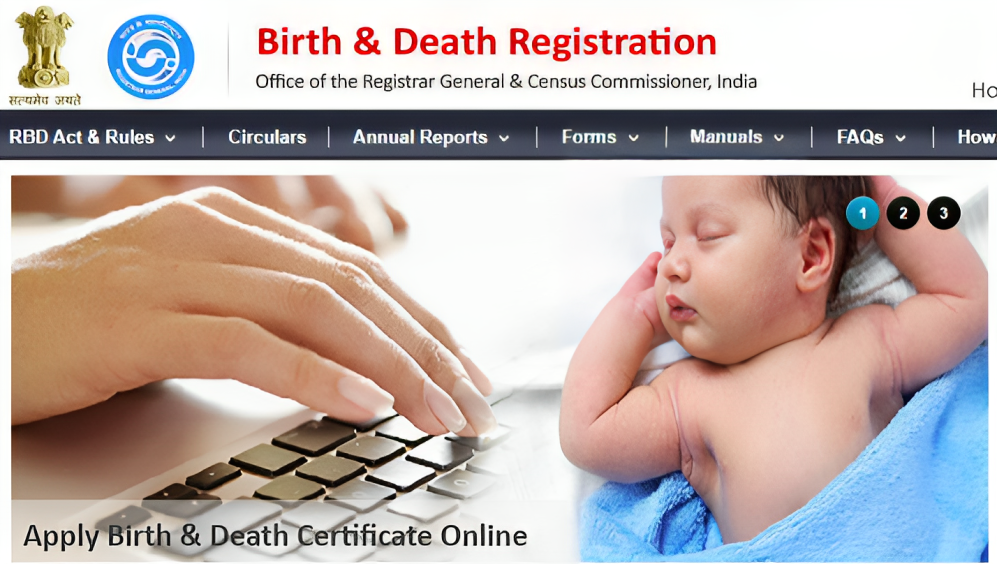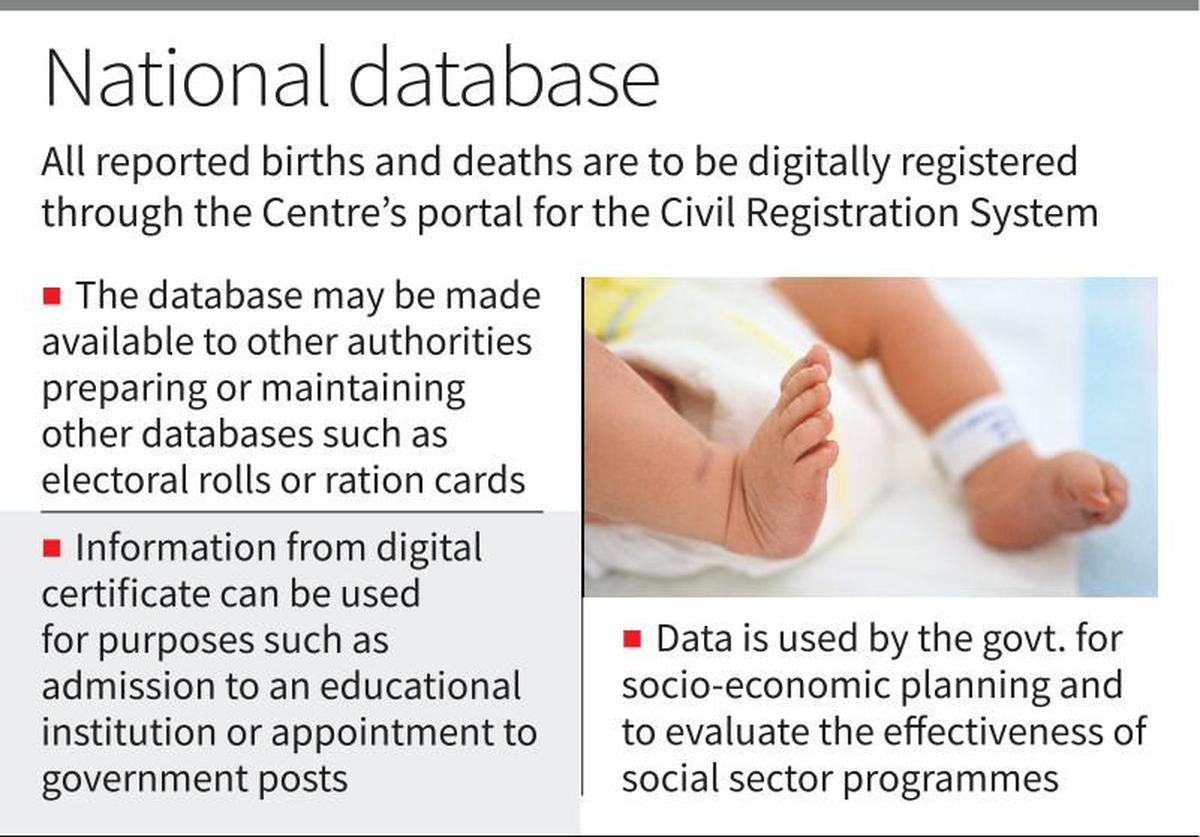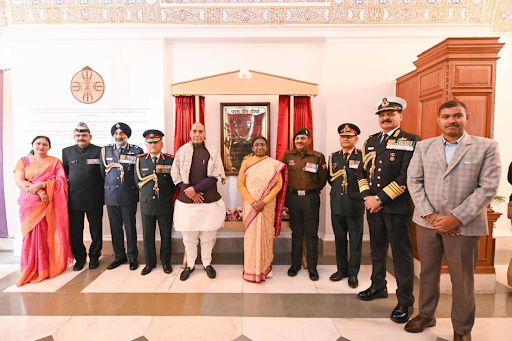Description

Copyright infringement not intended
Picture Courtesy: https://www.thestatesman.com/tag/citizens
Context: The Union Ministry of Home Affairs has drafted Model Rules requiring parents to declare their religion separately when registering a child's birth.
Details
- The Union Ministry of Home Affairs has drafted Model Rules requiring parents to separately declare their religion when registering the birth of a child. This is a departure from the current practice, where only the family's religion is recorded during birth registration.
- The proposed changes will require the religion of both the father and mother to be recorded alongside the child's details in the birth report.
Key Changes and Implications
- Expanded Birth Report Form: The new "Form No.1-Birth Report" will include separate sections for recording the religion of the child, father, and mother. This expansion aims to gather more detailed demographic information.
- Digital Registration System: All births and deaths are now digitally registered through the Civil Registration System (CRS) portal (crsorgi.gov.in) as per the Registration of Births and Deaths (Amendment) Act, 2023. This facilitates efficient data management and access to birth records.
- Use of Birth Data: The birth and death database may be utilised to update various government databases such as the National Population Register (NPR), electoral rolls, Aadhaar, ration cards, passports, etc. This indicates the interconnectedness of government databases for identity and service delivery purposes.
- Enhanced Birth Certificates: Digital birth certificates issued through the CRS will serve as a single document for proving the date of birth, essential for accessing various services like education.
- Legal and Statistical Information: Birth registers will now maintain information on parents' religion as part of statistical data. Additionally, legal information sections of birth certificates will include Aadhaar numbers, mobile and email IDs of parents, and detailed address information.
- Data Sharing and Coordination: The Registrar General of India (RGI) is mandated to maintain a national-level database of registered births and deaths. State-level Chief Registrars and Registrars are obligated to share this data with the national database, enabling data standardisation and coordination across regions.

Significance and Concerns
- Statistical Insights: Recording parents' religion provides valuable demographic insights for policymaking and socio-economic planning.
- Data Privacy and Security: With the increased use of Aadhaar numbers and other personal details in birth registration, ensuring data privacy and security becomes crucial.
- Uniformity and Standardization: The amendment aims to standardise birth registration practices across states and improve the quality and reliability of vital statistics.
Conclusion
- The proposed changes in birth registration rules reflect an effort to modernise data collection and improve the accuracy and utility of vital statistics. While these changes enhance data-driven governance and service delivery, they also raise important considerations regarding privacy, data security, and the potential implications of increased data linkage across government systems. It will be important for the government to address these concerns effectively while implementing the new rules to ensure transparency and accountability in the use of birth registration data.
Must Read Articles:
BILL TO AMEND THE REGISTRATION OF BIRTHS AND DEATH ACT
DIGITAL BIRTH CERTIFICATES
Source:
THE HINDU
|
PRACTICE QUESTION
Q. India has a young population with a high dependency ratio (working-age population supporting dependents). The challenge lies in creating enough jobs, skilling the workforce, and ensuring quality education to reap the economic benefits of this demographic window.
|











